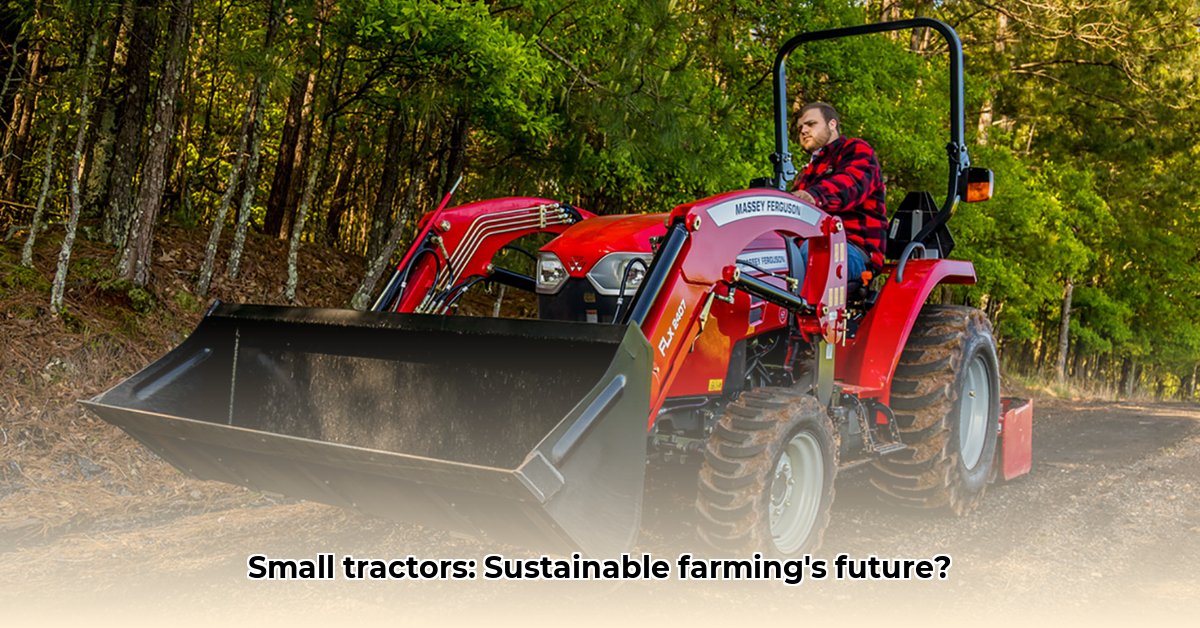
Farming is evolving, demanding both efficiency and environmental responsibility. Small Massey Ferguson tractors represent a potential solution, promising a balance between power and sustainability. But do they deliver on this promise? This article explores Massey Ferguson's move into compact tractors, analyzes their strengths and weaknesses, and examines the broader implications for farmers and the industry. For more details on Massey Ferguson industrial tractors, see this page.
Massey Ferguson's Focus on Compact Tractors: A Strategic Shift
Massey Ferguson's strategic entry into the compact tractor market signals a response to changing farmer needs. Smaller farms and specialized crops require versatile, manageable machinery. Massey Ferguson's marketing emphasizes durability and adaptability, key traits for efficient and sustainable farming. The inherent potential exists for lower fuel consumption, reduced land compaction, and possibly lower emissions. However, the lack of concrete data currently prevents a definitive assessment.
The Need for Data: A Critical Gap in the Analysis
While Massey Ferguson highlights the sustainability benefits of its compact tractors, critical data remains unavailable. Precise fuel efficiency figures and comprehensive emissions data are absent. This lack of transparency hinders a complete evaluation of their environmental impact. Independent verification is crucial for farmers to make informed purchasing decisions. Without this data, claims of superior sustainability remain unsubstantiated.
Comparing Compact Tractors: A Challenging Landscape
Massey Ferguson faces competition from established players like John Deere and Kubota. Direct comparisons are currently hampered by the scarcity of standardized data on fuel efficiency, emission levels, and horsepower-to-weight ratios. More detailed, objective comparisons are needed to facilitate informed decision-making. Currently available information is insufficient to declare definitive superiority for any specific brand.
Actionable Insights for Stakeholders: A Path Forward
The need for more data impacts all stakeholders. To ensure a sustainable future, collaborative efforts are needed. The following outlines key goals:
Farmers: Conduct independent assessments of compact tractor performance in various farming scenarios, advocating for government incentives for eco-friendly equipment.
Massey Ferguson: Publish detailed fuel efficiency and emission data for all compact tractor models, investing in research and development of alternative fuels and precision agriculture technologies.
Agricultural Researchers: Conduct thorough life-cycle assessments of compact tractors, including manufacturing and disposal impacts, and investigate design optimizations to minimize soil compaction and reduce the environmental footprint.
Governments: Implement regulations to promote eco-friendly agricultural machinery, including incentives for sustainable solutions, and invest in research and development to stimulate innovation in sustainable agricultural technologies.
Conclusion: A Promising Future, Dependent on Transparency
Small tractors like those offered by Massey Ferguson hold significant potential for sustainable agriculture. However, comprehensive data on fuel efficiency and emissions are necessary for accurate assessment and informed decision-making. Further research, independent testing, and transparent manufacturer specifications are crucial for a greener future in farming. The path forward requires collaborative efforts to bridge the data gap and unlock the full potential of compact tractors in sustainable agriculture. Only then can we fully realize the environmental and economic benefits of this technology.